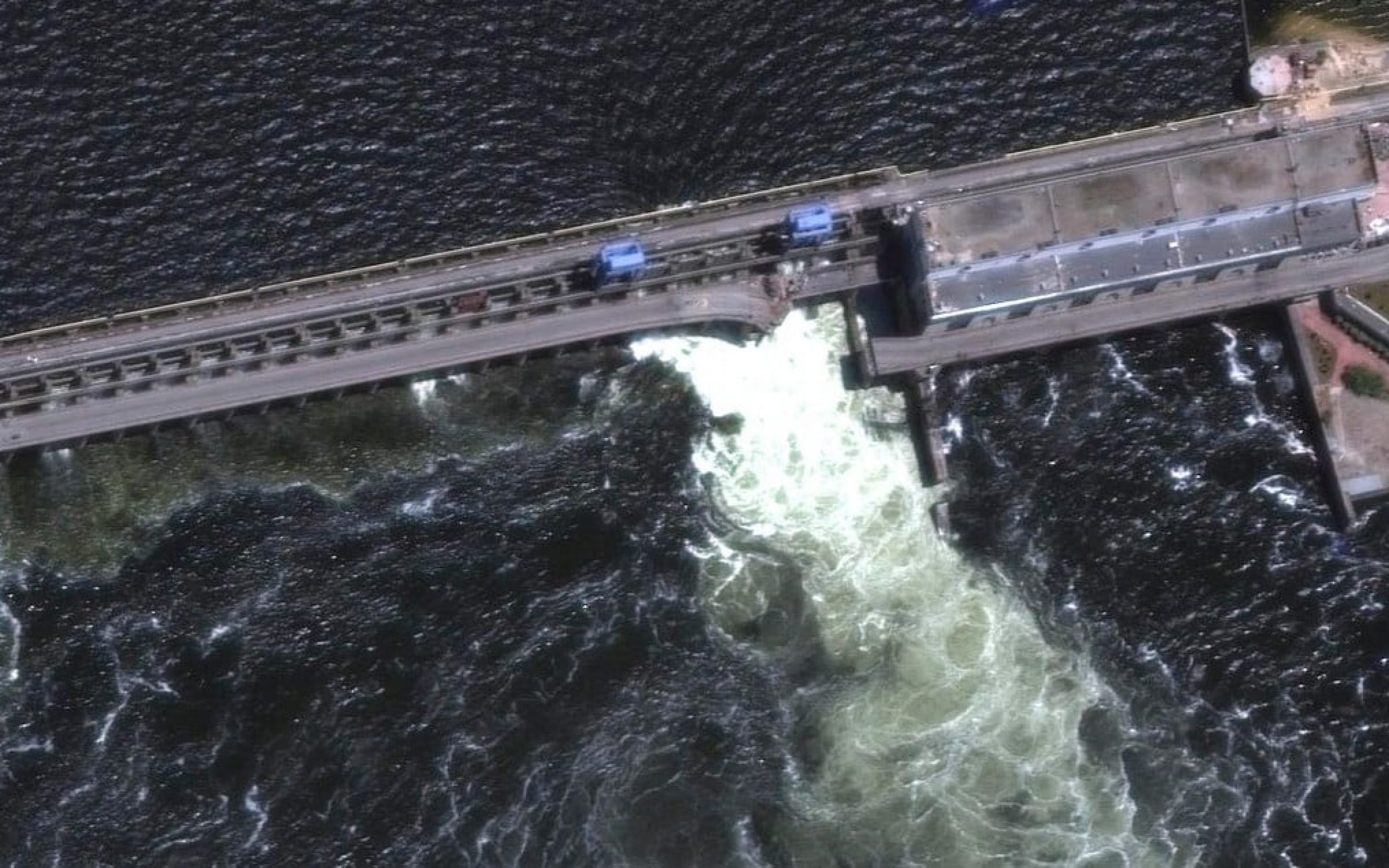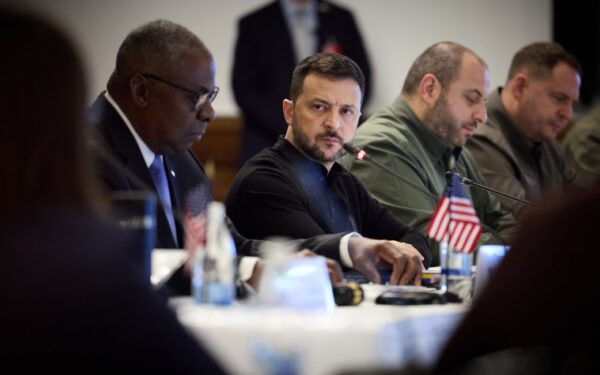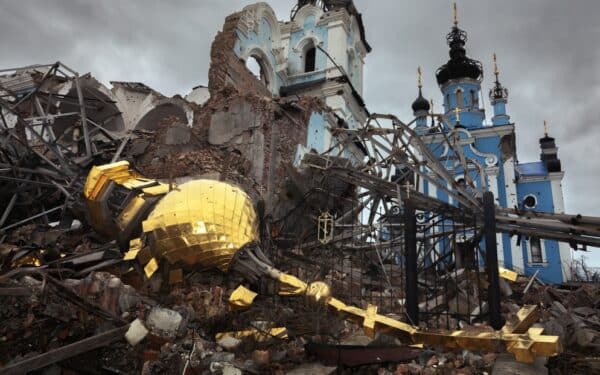Flooding caused by explosions at a vast dam in southern Ukraine overnight has changed the landscape of the war, and of the country itself.
Kyiv and Moscow blamed each other for the blast at the Kakhovka dam, Ukraine’s fifth largest, which has sent millions of tonnes of water cascading into land surrounding the Dnipro River.
Here’s what the flooding means for Ukraine…

Strategically
The destruction of the dam appears to be a significant achievement for Russian forces as they prepare to defend against Ukraine’s long-awaited counter-offensive.
The Dnipro River is now impassable, and military analysts believe it will remain so for at least two weeks.
The flooding would be likely to hinder the movement of Ukrainian armour as Kyiv’s armed forces attempt to push south towards Crimea.
It would also reduce the stretch of frontline Moscow’s troops will need to defend.
The destruction of the dam is consistent with Russian tactics since the start of the war to seize or destroy critical infrastructure. Last year, Russia was quick to seize the Chernobyl and Zaporizhzhia nuclear power plants, using them as shields for sustained artillery bombardments.
Ecologically
About 22,000 people live in areas at risk of flooding in Russian-controlled areas, while 16,000 live in the most critical zone in Ukrainian-held territory, according to official tallies. Neither side reported any deaths or injuries, although thousands of villagers are believed to have fled the surrounding area.
There are also serious concerns about the impact the flooding will have on Ukrainian agriculture.
The Russian-controlled Nova Kakhovka dam on the Dnipro River provides water to a swathe of southern Ukraine’s agricultural land, including the Russian-occupied Crimea peninsula, as well as cooling the Russian-held Zaporizhzhia nuclear plant.
The office of Ukrainian President Volodymyr Zelensky says the Dnipro is contaminated with 150 tonnes of industrial lubricants after the Kakhovka dam breach.
To make matters worse, the deal struck between Russia and Ukraine for grain to be exported from Ukrainian ports in the Black Sea is due to expire in mid-July.
Russia has repeatedly threatened to quit the deal, complaining that obstacles still remain to its own exports of food and fertiliser.
Legally
EU Council President Charles Michel accused Russia of attacking the Kakhovka dam, saying this amounted to a “war crime”.
If Russia did carry out the attack, would it have broken the laws of armed combat?
Dams are civilian infrastructure and are generally not valid military targets. If, however, a military unit were based around the dam, then it could be treated as such. There is no suggestion that this was the case here.
“An attack on a civilian target like a dam has to be done out of military necessity,” Dr Mark Ellis, executive director of the International Bar Association, told the BBC.
“But if the military advantage gained is small, and the damage done to civilians is catastrophic, then that would be a violation of international law.”
Write to us with your comments to be considered for publication at letters@reaction.life




